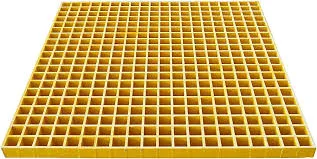
-
 Afrikaans
Afrikaans -
 Albanian
Albanian -
 Amharic
Amharic -
 Arabic
Arabic -
 Armenian
Armenian -
 Azerbaijani
Azerbaijani -
 Basque
Basque -
 Belarusian
Belarusian -
 Bengali
Bengali -
 Bosnian
Bosnian -
 Bulgarian
Bulgarian -
 Catalan
Catalan -
 Cebuano
Cebuano -
 China
China -
 China (Taiwan)
China (Taiwan) -
 Corsican
Corsican -
 Croatian
Croatian -
 Czech
Czech -
 Danish
Danish -
 Dutch
Dutch -
 English
English -
 Esperanto
Esperanto -
 Estonian
Estonian -
 Finnish
Finnish -
 French
French -
 Frisian
Frisian -
 Galician
Galician -
 Georgian
Georgian -
 German
German -
 Greek
Greek -
 Gujarati
Gujarati -
 Haitian Creole
Haitian Creole -
 hausa
hausa -
 hawaiian
hawaiian -
 Hebrew
Hebrew -
 Hindi
Hindi -
 Miao
Miao -
 Hungarian
Hungarian -
 Icelandic
Icelandic -
 igbo
igbo -
 Indonesian
Indonesian -
 irish
irish -
 Italian
Italian -
 Japanese
Japanese -
 Javanese
Javanese -
 Kannada
Kannada -
 kazakh
kazakh -
 Khmer
Khmer -
 Rwandese
Rwandese -
 Korean
Korean -
 Kurdish
Kurdish -
 Kyrgyz
Kyrgyz -
 Lao
Lao -
 Latin
Latin -
 Latvian
Latvian -
 Lithuanian
Lithuanian -
 Luxembourgish
Luxembourgish -
 Macedonian
Macedonian -
 Malgashi
Malgashi -
 Malay
Malay -
 Malayalam
Malayalam -
 Maltese
Maltese -
 Maori
Maori -
 Marathi
Marathi -
 Mongolian
Mongolian -
 Myanmar
Myanmar -
 Nepali
Nepali -
 Norwegian
Norwegian -
 Norwegian
Norwegian -
 Occitan
Occitan -
 Pashto
Pashto -
 Persian
Persian -
 Polish
Polish -
 Portuguese
Portuguese -
 Punjabi
Punjabi -
 Romanian
Romanian -
 Russian
Russian -
 Samoan
Samoan -
 Scottish Gaelic
Scottish Gaelic -
 Serbian
Serbian -
 Sesotho
Sesotho -
 Shona
Shona -
 Sindhi
Sindhi -
 Sinhala
Sinhala -
 Slovak
Slovak -
 Slovenian
Slovenian -
 Somali
Somali -
 Spanish
Spanish -
 Sundanese
Sundanese -
 Swahili
Swahili -
 Swedish
Swedish -
 Tagalog
Tagalog -
 Tajik
Tajik -
 Tamil
Tamil -
 Tatar
Tatar -
 Telugu
Telugu -
 Thai
Thai -
 Turkish
Turkish -
 Turkmen
Turkmen -
 Ukrainian
Ukrainian -
 Urdu
Urdu -
 Uighur
Uighur -
 Uzbek
Uzbek -
 Vietnamese
Vietnamese -
 Welsh
Welsh -
 Bantu
Bantu -
 Yiddish
Yiddish -
 Yoruba
Yoruba -
 Zulu
Zulu
fiberglass pipe fittings
Understanding Fiberglass Pipe Fittings A Comprehensive Overview
Fiberglass pipe fittings are essential components in various industrial and commercial applications. Known for their durability, corrosion resistance, and lightweight characteristics, these fittings are increasingly becoming the material of choice for many engineers and project managers. In this article, we will delve into the properties, advantages, applications, and installation considerations of fiberglass pipe fittings.
Properties of Fiberglass Pipe Fittings
Fiberglass, or glass-reinforced plastic (GRP), comprises a polymer matrix reinforced with fiberglass. This combination offers a unique set of properties that distinguishes it from traditional materials like metal and plastic. Key properties include
1. Corrosion Resistance Unlike metals, fiberglass is highly resistant to a wide range of chemicals, making it suitable for use in environments where corrosive substances are present. 2. Lightweight Fiberglass fittings are significantly lighter than metal fittings, which can reduce transportation costs and installation time.
3. High Strength-to-Weight Ratio The reinforced structure provides excellent tensile strength while maintaining a lightweight profile.
4. Thermal Insulation Fiberglass does not conduct heat as easily as metal, making it an effective choice for thermal applications.
5. Low Maintenance The durability and resistance to corrosion mean that fiberglass fittings require less maintenance over time compared to traditional materials.
Advantages of Fiberglass Pipe Fittings
The benefits of using fiberglass fittings extend beyond their physical properties. Some of the notable advantages include
- Cost-Effectiveness Although the initial cost of fiberglass fittings may be higher than some alternatives, their longevity and reduced maintenance needs often make them a more economical choice in the long run.
- Customizability Fiberglass pipe fittings can be manufactured in a variety of sizes and shapes to meet specific project requirements, allowing for greater flexibility in design.
- Environmental Resistance Fiberglass does not rust or rot, making it an ideal material for applications exposed to harsh environmental conditions.
- Ease of Installation The lightweight nature of fiberglass fittings allows for easier handling and installation, which can lead to labor savings
.fiberglass pipe fittings

Applications of Fiberglass Pipe Fittings
Fiberglass fittings find their applications in diverse industries, including
- Chemical Processing Due to their corrosion-resistant properties, fiberglass fittings are widely used in handling corrosive chemicals where metal pipes would fail.
- Water and Wastewater Treatment Fiberglass is also popular in water treatment plants, where durability and low maintenance are critical.
- Marine Applications The resistance to saltwater corrosion makes fiberglass pipe fittings ideal for marine environments, including boat manufacturing and underwater applications.
- HVAC Systems In heating, ventilation, and air conditioning systems, fiberglass fittings can effectively transport air without the risk of corrosion that metal fittings might face.
Installation Considerations
When installing fiberglass pipe fittings, several factors should be considered to ensure a successful outcome
1. Compatibility Ensure that all fittings and pipes are compatible in terms of material to avoid deterioration and leaks.
2. Proper Sealing Use appropriate jointing methods, such as adhesives or mechanical connectors, to ensure airtight connections.
3. Temperature and Pressure Ratings Always check the temperature and pressure ratings of fiberglass fittings to ensure they are suitable for your application.
4. Support and Anchoring Adequate support and anchoring are crucial to prevent sagging and damage over time.
In conclusion, fiberglass pipe fittings offer a range of benefits that make them an excellent choice for various applications. Their durability, resistance to corrosion, and ease of installation make them fundamental components in modern industrial and commercial piping systems. As industries continue to seek materials that offer both performance and longevity, fiberglass fittings are poised to play an increasingly vital role in engineering solutions. For anyone involved in design or construction, understanding and utilizing fiberglass pipe fittings can lead to better project outcomes and enhanced system reliability.









